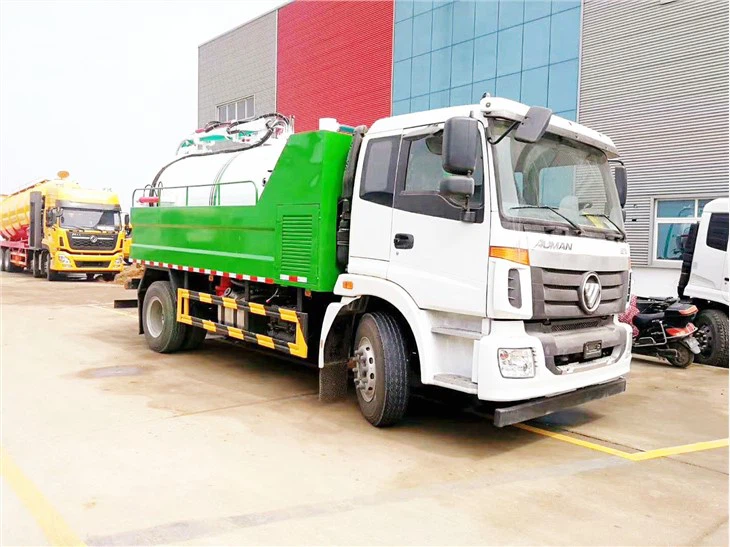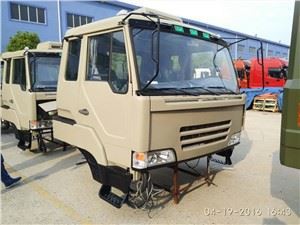Sewer Trucks for Sale: Your Comprehensive Buyer’s Guide

If you’re in the market for sewer trucks, whether for municipal work or private services, understanding your options is crucial. This detailed guide will take you through everything you need to know about sewer trucks for sale, including types, features, maintenance tips, and buying strategies to ensure you make an informed decision.

Understanding Sewer Trucks
What are Sewer Trucks?
Sewer trucks are specialized vehicles designed for waste management, particularly for cleaning and maintaining sewer systems. They are equipped with advanced technology to handle various tasks such as vacuuming, jetting, and transporting waste.
Types of Sewer Trucks
Sewer trucks come in different varieties based on their purpose and equipment. Here are the most common types:
Vacuum Trucks
Vacuum trucks are used for sucking up liquids, sludge, and solid debris from sewer systems. They are ideal for septic tank cleaning and general waste collection.
Jetting Trucks
Jetting trucks use high-pressure water jets to clean clogged sewer lines. These trucks are essential for preventative maintenance and effective cleaning.
Combination Trucks
Combination trucks incorporate both vacuum and jetting technologies. They are versatile and can handle various tasks related to sewer maintenance.
Grease Trap Trucks
These trucks are specifically designed to service grease traps in commercial kitchens, ensuring that they are properly emptied and cleaned to prevent sewer back-ups.
Key Features to Look For
Capacity
When purchasing a sewer truck, consider the capacity of the tank. Smaller trucks typically have tanks that hold 1,000 to 3,000 gallons, while larger models can exceed 5,000 gallons. Choose a size based on the volume of waste you expect to handle.
Engine Power
Engine power is particularly important for vacuum and jetting functionality. Look for trucks with a robust engine that can handle heavy workloads without compromising performance.
Material and Build Quality
Look for trucks built from durable materials. Stainless steel tanks are favored due to their resistance to corrosion and ease of cleaning.
Safety Features
Safety is crucial when operating sewer trucks. Ensure that safety features like emergency shut-off valves, proper lighting, and reflective markings are included.
Buying New vs. Used Sewer Trucks
New Sewer Trucks
Buying new sewer trucks guarantees the latest technology and warranty protections. However, they come at a higher price. New trucks may be equipped with enhanced fuel-efficient engines and state-of-the-art cleaning systems.
Used Sewer Trucks
Used trucks can be a cost-effective alternative. When considering a used sewer truck, it’s important to check the vehicle’s maintenance history, how often it was serviced, and overall condition. Look for signs of wear and tear.
Where to Find Sewer Trucks for Sale
Online Marketplaces
There are numerous online platforms where you can find sewer trucks for sale, including:
- TruckPaper.com
- CommercialTruckTrader.com
- eBay Motors
Dealerships
Many dealerships specialize in commercial vehicles, including sewer trucks. They are a good option for purchasing new trucks and often have financing options available.
Auction Houses
Government and private auctions frequently sell used sewer trucks. This option can yield significant savings, but it requires careful inspection prior to bidding.
Cost of Sewer Trucks
Price Range
The cost of sewer trucks varies significantly based on features and condition. Here’s a general price breakdown:
| Type of Truck | New Price Range | Used Price Range |
|---|---|---|
| Vacuum Truck | $100,000 – $300,000 | $30,000 – $150,000 |
| Jetting Truck | $150,000 – $350,000 | $40,000 – $200,000 |
| Combination Truck | $200,000 – $400,000 | $60,000 – $250,000 |
| Grease Trap Truck | $90,000 – $200,000 | $25,000 – $100,000 |
Financing Options
Bank Loans
Traditional bank loans are one financing option. Make sure to compare the interest rates and loan terms from different banks.
Leasing
Leasing a sewer truck can be a cost-effective solution for companies that prefer to conserve cash flow. This option typically requires lower initial payments.
Manufacturer Financing
Some manufacturers offer financing directly. These deals may include lower rates or special promotions, so inquire when looking at new options.
Maintenance Tips for Sewer Trucks

Regular Inspections
Schedule regular inspections to catch issues early. Check for leaks, wear on hoses, and the condition of pumping units.
Fluid Changes

Change engine oil and hydraulic fluids as recommended by the manufacturer. This practice can extend the life of the truck.
Cleaning the Tank
Periodically clean the tank to prevent build-up of residue. Use appropriate cleaning agents and follow safety protocols.
Practical Examples and Tips
Example of a Successful Purchase
A municipal authority recently purchased a used combination sewer truck from an auction for $80,000. After inspecting the truck and verifying its maintenance history, they found that it met all their operational needs and was in excellent condition. They saved significantly compared to buying new.
Choosing the Right Truck for Your Needs
Assess the specific tasks your business will undertake. A smaller vacuum truck may suffice for residential services, while a combination truck could be essential for larger projects involving extensive cleaning and waste transport.
Frequently Asked Questions (FAQ)
1. How do I know what size sewer truck I need?
Your needs depend on the volume of waste you typically handle. Smaller sewer trucks are suitable for residential tasks, while larger trucks are needed for commercial or municipal services.
2. What maintenance should I perform on my sewer truck?
Regular maintenance includes fluid changes, inspections of hoses and pumps, and periodic cleaning of the tank.
3. Are financing options available for purchasing a sewer truck?
Yes, you can consider bank loans, leasing options, or manufacturer financing when buying a sewer truck.
4. Can I buy a sewer truck online?
Yes, online marketplaces like TruckPaper.com and CommercialTruckTrader.com often have listings for new and used sewer trucks.
5. What are some common issues to look for when buying a used sewer truck?
Check for visible wear and tear, inspect the maintenance history, ensure there are no leaks, and assess the overall condition of the equipment.
6. How often should sewer trucks be inspected?
It’s recommended to have sewer trucks inspected regularly, at least every 2,000 miles or every six months, whichever comes first, or more often based on usage intensity.
